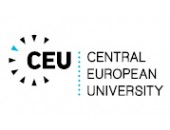
Can Heritage be Transnationalised? The Implications of Transnationalism for Memory and Heritage in Europe and Beyond
Jasper Chalcraft and Gerard Delanty, University of Sussex, UK
This paper asks what happens to heritage when it is transnational, and also as it transnationalises? A major challenge is to relate transnational conceptions of history to the idea of heritage, such that a new and more relevant understanding of the European heritage could reflect Europe’s transnational history.
We claim that emphasis on transnational heritage offers hope that the cultural memory of a continent can become transformative, possibly even enabling the cosmopolitan cultural memory that Europe often espouses. Unfortunately, too often Europe’s memory projects have promised much but delivered more of the same: nationalism, and reified ethnopolitical and religious identities. They have revealed a continent ignorant of its real pasts, and unable to overturn its legacy of prejudice and discrimination towards both incomers and its historical minorities.
The last few decades have seen ‘heritage’ becoming a growth industry. This tangible way of representing and thinking about the past has become key to how European societies deal with the past. History, as a true(r) record of the past, no longer counts. National pasts have themselves become ‘heritage cultures’ (Wood 1999: 31), cut-adrift from the anchoring historical narratives that rightly or wrongly helped shape cultural memory. Now we are all making it up as we go along, individualising memory and ignoring the historical challenges to our personal and collective identities.
The transnational element of heritagisation is crucial to understanding broader shifts in the attitudes of societies to the past. Where this is leading is unclear and is complicated by different ideas and expectations of transnational heritage: it is seen as both a unifying cosmopolitan project as well as a breaking-up of bounded pasts linked to defined identities. Transnationalising heritage carries with it an implicit challenge for some identities: by recognising transnational heritages those identities that claim exclusive group membership are revealed to be anachronistic. What this implies is that a transnationalising heritage has the potential to make European identity a question of ‘becoming minoritarian’ (Braidotti 2006 and 2015); this means uprooting the old anchors of identity and recognising one’s ‘partiality’, rather than blindly taking old identities (and heritages) as givens.
Although it does not necessarily follow, it is possible that a more transnationalised conception of heritage, in keeping with Europe’s past, can offer contemporary societies a more cosmopolitan orientation to their identities.
Memory and heritage I
Vision Document. Entangled Memories & the European Cultural Heritage Gerard Delanty A possible direction for research on the European cultural heritage is to adopt a transnational approach. Rather than see...
Read moreMemory and heritage II
Vision Document. Negotiating Heritage Rights Jasper Chalcraft Heritage rights carry with them many of the ambiguities of human rights. A core difficulty is that in practice they have tended to...
Read more









